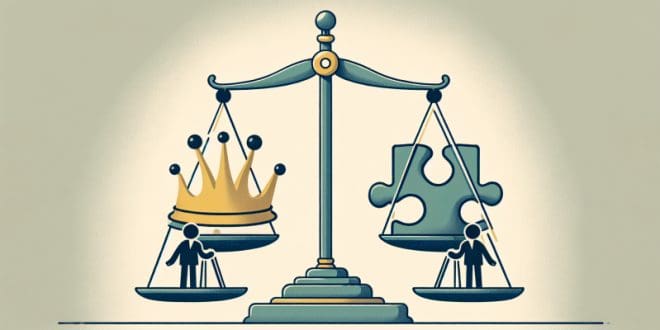In the realm of philanthropy, the quest for social change has long been a driving force, spurring donors and grantmakers to invest in various causes and initiatives. However, the enduring question of how to effectively foster social change remains, particularly when considering the inherent power dynamics present in the relationship between funders and grantees. Traditional philanthropy often operates on a top-down approach, where funders possess significant authority over what and who gets funded, potentially stifling innovation and equity in the nonprofit sector. But what if we could reshape these dynamics into something more collaborative and inclusive?
Participatory grantmaking has emerged as a compelling alternative, one that aims to democratize the decision-making process and share power more equitably among those involved. This approach invites those who are impacted by the grantmaking to have a say in the process, giving voice and agency to communities that are often the target of social interventions, yet rarely included in the conversations about them.
The potential impacts of such a power-balanced partnership are profound. By involving diverse stakeholders, particularly those with lived experiences pertinent to the issues being addressed, grantmaking can become more targeted, responsive, and effective. It opens doors to understand the nuances and complexities of social challenges, allowing for more innovative solutions to surface – solutions that are rooted in the lived realities of the communities they aim to serve.
Consider the case of the Disability Rights Fund, which practices participatory grantmaking by involving persons with disabilities in the grantmaking process. This has not only empowered the community but has led to more strategic and responsive funding that addresses the most pressing issues as identified by the very individuals who live them.
Another example can be found in the environmental sector. The Fund for Shared Insight’s ‘Listen for Good’ initiative focuses on closing the feedback loop, encouraging nonprofits to gather and respond to feedback from those they seek to help. This initiative not only transforms the funder-grantee relationship but also fosters a culture of continuous learning and improvement across the sector.
Beyond individual case studies, the move towards a more balanced partnership in grantmaking signals a significant cultural shift in the philanthropic world – one that embraces transparency, mutual respect, and a willingness to share power. This approach can dismantle the traditional hierarchies in philanthropy and encourage a culture that is itself a catalyst for equity and innovation.
For grantmakers and nonprofit professionals seeking to engage in more equitable and effective funding practices, the path forward involves embracing humility and openness to change. It means recognizing the potential in every community and working to amplify rather than overwrite local voices. It’s about building relationships based on trust and recognizing the expertise that grantees bring to the table.
To truly reimagine grantmaking, the industry must not only fund for social change but must also adapt its processes and culture to reflect the values it champions. By fostering an environment where power is shared and collaboration is paramount, philanthropy can more effectively ignite the social transformations it seeks to create.
As readers in the grants, donations, fund, and nonprofit space, you hold the keys to encouraging this shift. Share your experiences, advocate for inclusive practices in your organizations, and foster discussions around participatory grantmaking. The journey towards a balanced power dynamic in grantmaking is not just a possibility but a necessary step in advancing substantial social change. Let’s lead the way together.
 Grants Club Community
Grants Club Community







